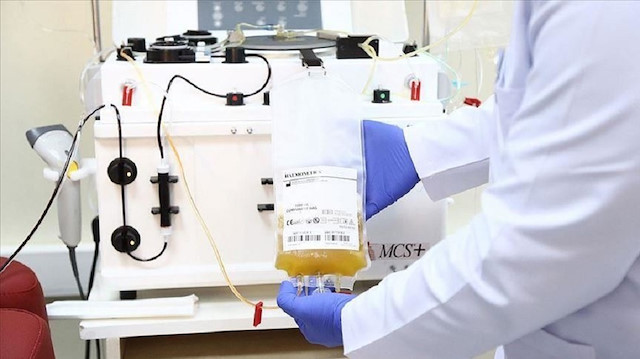

File photo
Plasma bank to ease access to blood plasma for treating patients of novel coronavirus
India on Thursday opened the country's first blood plasma bank in the capital Delhi to improve access to blood plasma required in the treatment of novel coronavirus patients.
"People were facing difficulty in acquiring blood plasma. This plasma bank will thus help in accessing it, but it will only work if people come forward to donate blood plasma," Delhi's Chief Minister Arvind Kejriwal said during bank inauguration.
People who have recovered from COVID-19 develop antibodies against the disease in their blood, known as convalescent plasma. This can then be transfused into critical patients to boost their immune response to the disease in a procedure called convalescent plasma therapy.
Delhi was one of the first states to give the go-ahead for convalescent plasma therapy in April.
Plasma donations take from 45 minutes to an hour after basic tests are run on the donor, plasma bank officials told Anadolu Agency. After this, a certificate is given to the donor acknowledging his service.
"Any COVID-19 patient who recovered from the disease 14 days prior is eligible to donate plasma. The donor should weigh at least 50 kilograms [110 pounds] and be in the 18-60 age group," added Kejriwal.
On Monday, the worst-hit western state of Maharashtra too kicked off plasma therapy trials with the launch of the Project Platina initiative, which will be conducted in 17 medical colleges in the state.
Earlier this month, the southern state of Kerala announced plans to set up a plasma bank, but it is still in the works.
Delhi, with over 27,000 active cases, has the second-highest number of active coronavirus cases in India, with total infections in the state nearing 90,000.
India is the fourth worst-hit country by COVID-19 with over 600,000 cases totaling to 604,641 including 17,834 deaths.
#blood plasma bank
#Coronavirus
#COVID-19
#India
#pandemic

